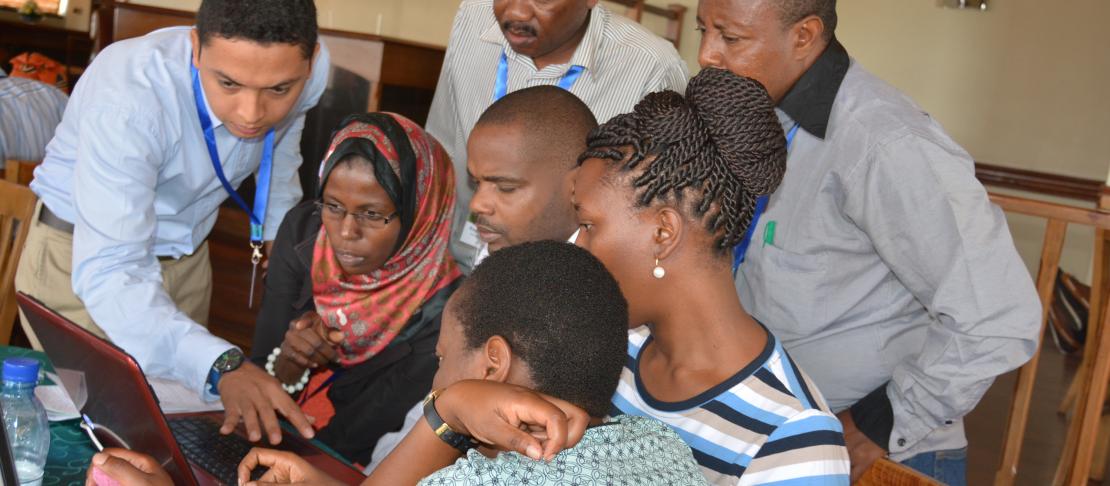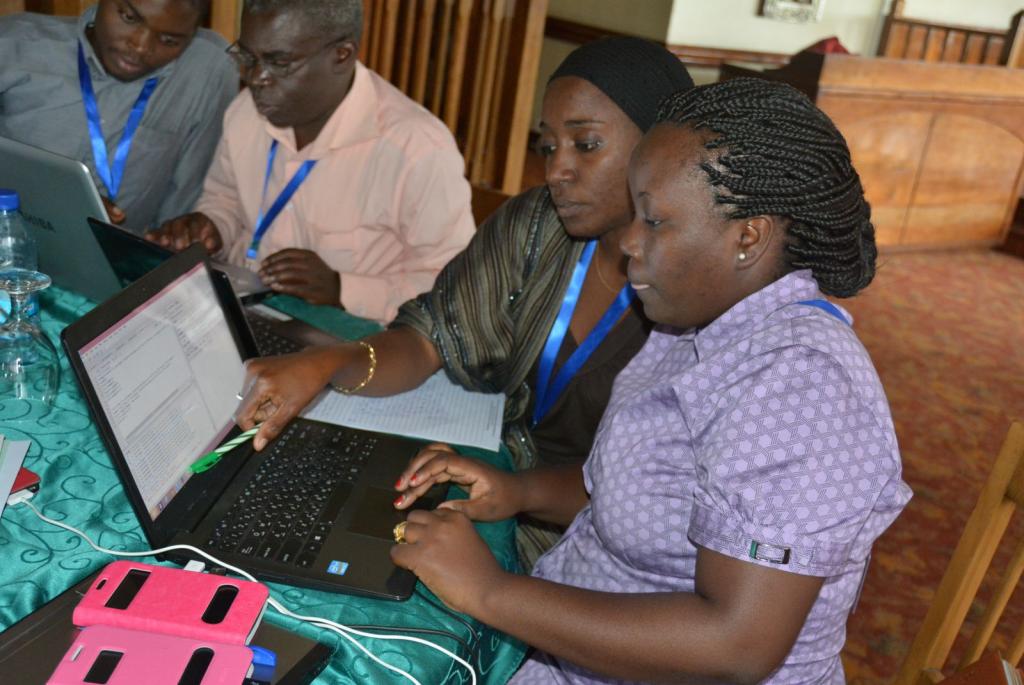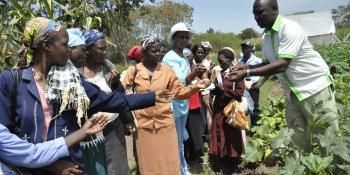Improving adaptation planning in Tanzania through the climate analogue tool

Policy makers and researchers from National Agricultural Research and Extension Systems (NARES), Universities and Government Ministries came together to learn about the CCAFS Analogue tool and its application.
The Tanzania National Adaptation Plan of Action (NAPA) of 2006 identifies agriculture as one of the sectors highly vulnerable to the impacts of climate change. These are manifested through recurrent drought and variable rainfall with prolonged dry spells.
According to the Tanzanian National Development Vision 2025, agriculture and food security are key to poverty alleviation. Climate variability and climate change, coupled with increasing prices of agricultural inputs, reduced access to irrigation water and declining soil fertility are major factors negatively affecting agricultural production in this East African country.
While great strides have been made in understanding climate change and its impacts on agriculture, there are still major uncertainties.
“With the evolution of sophisticated tools and models to understand impacts associated with climate change, scientists are now better placed to inform policy makers on suitable climate change adaptation strategies for different agricultural zones in Tanzania”, said Dr. Hussein Mansoor, Assistant Director, Crop Division at the Ministry of Agriculture, Food Security and Cooperatives.
Dr. Mansoor made this remark as he officiated the closing ceremony of the training workshop on “Using Climate Scenarios and Analogues for Designing Adaptation Strategies”, held in Dar-es-salaam, Tanzania in July 2014. The training workshop was organized by the CGIAR Research Program on Climate Change, Agriculture and Food Security (CCAFS) East Africa, in collaboration with the Agricultural Research Institute (ARI)-Mlingano based in Tanga, Tanzania. Participants included 10 women and 16 men from the National Agricultural Research and Extension Systems (NARES), Universities, Government Ministries and Authorities. This was the third national training in East Africa after similar events were held in Ethiopia and Kenya and a regional training workshop held in August, 2012 to enhance capacity of researchers from the NARES, Universities and National Meteorology Agencies (NMA)in the region.
Read more: East Africa moves towards implementation plans with the Climate Analogues too
“The term climate analogues describe two sites that share similar climatic conditions. These sites may be separated geographically and/or temporally (similar climatic conditions experienced at different periods of time) as climatic conditions change and migrate,” said David Arango, the lead trainer from CCAFS/CIAT, Columbia.
The climate analogue tool can help identify where specific plant genetic resources will need to be sourced in response to the challenges related to climate change. Secondly, it can be used to connect farmers to their possible climate futures via ‘farm visits’, a project referred to as Farms of the Future (Fotf). Initiated by CCAFS, Fotf provides farmers with the opportunity to physically see analogue sites, and envision how their site-specific agricultural future might look, as dictated by climate conditions. In 2012, farmers in Tanzania undertook farmer-to-farmer exchange visits to analogue sites to learn potential adaptation strategies to cope with their climatic constraints.
The training - Analogues R package
Most of the sessions involved hands-on training. Participants were introduced to the online platform which allows quick identification of likely analogue sites. Other sessions included performing in-depth analysis of the input parameters including soil using the offline R package. The Analogues R package is the preferred platform for applications of the tool, such as for Farms of the Future and germplasm exchange, as it facilitates use of all available Global Circulation Models (GCMs), allows for greater uncertainty quantification and the potential introduction of user defined data. Even though one does not require skills in the R package to use the online tool, some knowledge of climate modelling is necessary.
“The training was very rich! We were fully engaged in the lectures and group discussions with an urge to know more about the tool,” said Juma Wickama, a Principal Researcher at Agricultural Research Institute, Mlingano and also a coordinator of the training.

participants gain hands on experience on the analogues tool. PHOTO: P.kIMELI (CCAFS)
The participants also suggested further improvements to the Analogue Tool.
“We only used examples based on Coupled Model Inter-comparison Project phase three (CIMIP3) and GCM’s. The tool should include CIMIPphase five scenarios and projections”, said Madaka Tumbo, a Land and Resource Specialist and lecturer- Institute of Resource Assessment (IRA), University of Dar-es-Salaam.
Madaka further explained that an inclusion of the available coordinated regional climate downscaling experiment (CORDEX) provided a global coordination of regional climate downscaling for improved climate change adaptation, and impact assessment of results for Africa.
With this, it will be possible to compare different scenarios and projections from different models and understand where they agree or disagree. This will serve as the first step in tackling the uncertainty related to the scenarios and projections, which will in turn trickle down to the identified analogue sites.
On the usefulness of the tool, Madaka noted that it can be used for research planning as well as policy implementation.
“This tool can help improve understanding of farmers and scientists of climate projections and adaptation pathways. Scientist need to work together with politicians in the development of national plans and policy decisions regarding climate change adaptation, especially in the agricultural sector”, said Ramadhan Ngatoluwa of Selian Agricultural Research Institute.
The workshop participants will be using the Analogue Tool to inform the development of national adaptation plans through their respective institutions. In addition, they will train other researchers in their respective institutions. This will enhance their capacities in designing adaptation and mitigation strategies based on scientific evidence for farming communities in Tanzania.
This blog was written by Catherine Mungai, Philip Kimeli and Maren Radeny all from CCAFS EA with contributions from Madaka Tumbo (IRA-University of Dares Salaam) and Juma Wickama (ARI-Mlingano.
For more information about CCAFS work in East Africa visit our webpage and follow @cgiarclimate_EA on twitter.



